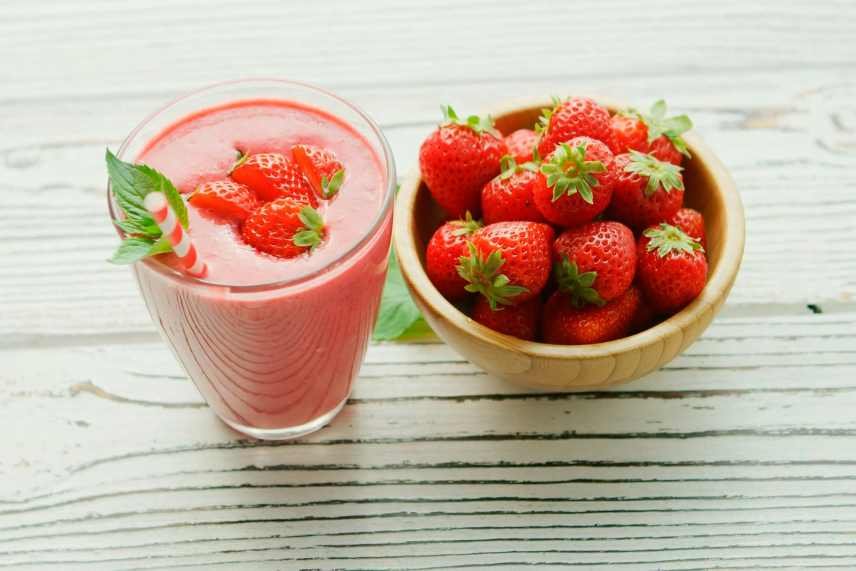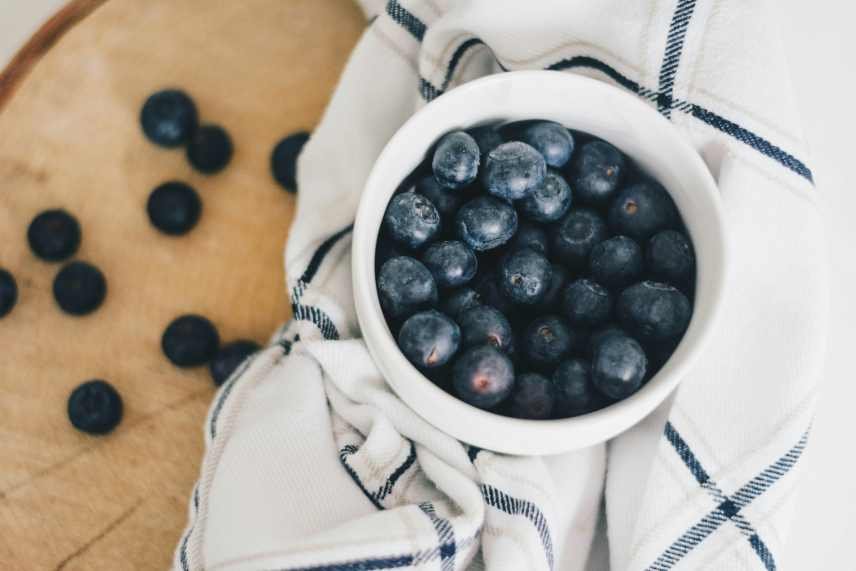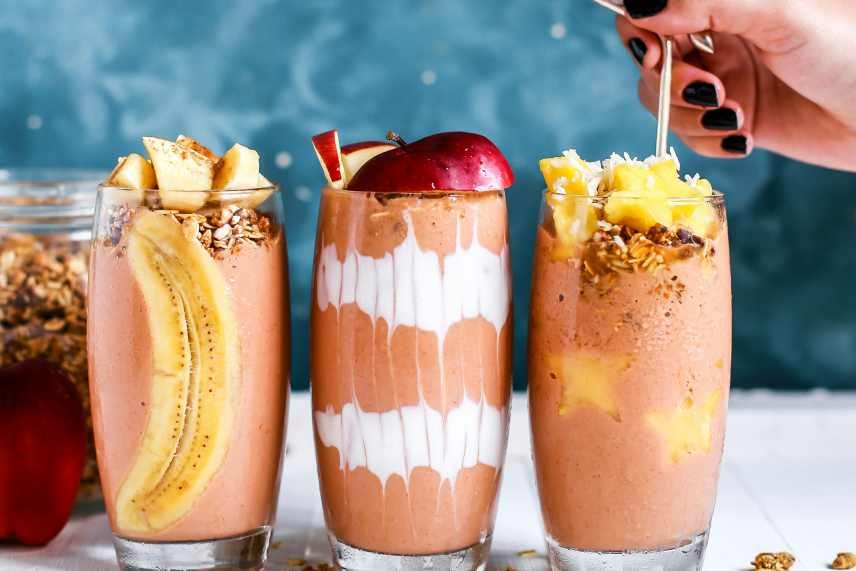While smoothies are often heralded as a fast track to wellness, it’s crucial to peel back the layers and understand their nutritional profile. Despite their popularity, smoothies can sometimes fall short in delivering all the essential nutrients, pack more calories than expected, and even affect digestion and fullness due to their sugar content.
This highlights the importance of maintaining a balanced diet that includes whole fruits and vegetables to truly reap the benefits of a healthy lifestyle.
Overview: Limitations of Smoothies in a Healthy Diet
While smoothies are celebrated for their convenience and often dense nutrient profile, they are not the panacea for nutritional wellness that many believe them to be. This misconception arises from the assumption that blending a variety of fruits and vegetables can deliver the same, if not more, nutritional benefits as consuming these foods in their whole form.
However, this process can sometimes result in the loss of essential nutrients. For example, the physical act of blending can lead to the breakdown of naturally occurring fiber in fruits and vegetables, which is crucial for maintaining healthy digestion and regulating blood sugar levels.
Furthermore, the consumption of smoothies does not activate the body’s digestive processes in the same way that chewing whole foods does, potentially leading to diminished absorption of some nutrients.
Another significant limitation of smoothies in a healthy diet is the potential for increased calorie and sugar intake. Many smoothies, especially those found in commercial establishments, contain added sugars, syrups, or other high-calorie ingredients that can significantly increase the caloric content of the drink. Even homemade smoothies can unintentionally become calorie-dense when made with high-sugar fruits or additional sweeteners.
This aspect is particularly concerning considering that liquid calories do not promote the same level of satiety as solid foods, potentially leading to over-consumption and, over time, weight gain. It’s also important to consider that the rapid consumption of smoothies can cause spikes in blood sugar levels, a concern not typically associated with the slower consumption of whole fruits and vegetables.
The Myth of Smoothies as a Complete Nutritional Solution
Smoothies are often celebrated as a cornerstone of a health-conscious lifestyle, but they fall short of being a panacea for nutritional needs. While they can serve as a convenient way to consume fruits and vegetables, they may miss essential nutrients such as proteins and healthy fats, which are indispensable for a comprehensive diet.
The blending process itself poses a problem; it can lead to the degradation of certain nutrients and antioxidants due to prolonged exposure to air and light. This reduction in nutritional value is not just theoretical but has been observed in practical scenarios.
For example, when fruits are blended into smoothies, the delicate balance of nutrients can be disturbed, leading to a less nutritious beverage than one might assume.
Moreover, the structural changes to fiber during the blending process raise concerns about smoothies’ effects on gut health and blood sugar regulation. Fiber, crucial for digestive health and maintaining stable blood sugar levels, can be broken down into a less effective form through blending.
This can lead to quicker sugar absorption and heightened blood sugar spikes, as demonstrated in studies comparing the consumption of whole fruits to their blended counterparts.
A specific instance highlighting this issue found that individuals consuming blended fruits experienced more significant blood sugar fluctuations than those who ate whole fruits, underscoring the limitations of smoothies in managing conditions such as diabetes or insulin resistance.
Thus, while smoothies can be a part of a healthy diet, relying on them exclusively overlooks the complex nutritional needs of the human body, emphasizing the importance of a diverse and balanced diet.
Caloric Content and Weight Management
While smoothies are often marketed as a health food, their caloric content can be deceptively high, particularly when ingredients such as nut butters, flavored syrups, or sweetened yogurts are added. These components, while delicious, can significantly boost the calorie count of a smoothie, sometimes making it comparable to a full meal rather than a low-calorie snack.
For individuals monitoring their caloric intake for weight management, this can pose a challenge, especially if smoothies are consumed in addition to regular meals rather than as replacements. An example of how quickly calories can add up is seen in smoothies that incorporate peanut butter and honey for flavor; a single tablespoon of each can add over 130 calories to a smoothie.
Moreover, the liquid form of smoothies can impact satiety differently than solid foods. When we consume solid foods, the act of chewing and the time it takes to eat contribute to feelings of fullness and satisfaction, signals that are less pronounced when drinking smoothies.
This discrepancy can lead individuals to consume more calories than they might with a solid meal because the body does not register fullness in the same way.
Furthermore, the habit of adding sweeteners to improve taste can exacerbate this issue, increasing the smoothie’s calorie content without enhancing its ability to satisfy hunger. This can lead to a cycle of increased calorie consumption without the corresponding feeling of fullness, potentially contributing to weight gain over time if not carefully managed.

The Impact on Satiety and Digestion
Chewing whole foods initiates a series of physiological responses that are essential for optimal digestion and the feeling of fullness. When we chew, our bodies release digestive enzymes in the saliva, which start breaking down food in the mouth.
This early stage of digestion is bypassed when consuming smoothies, as the blending process has already mechanically broken down the food. This lack of initial mechanical digestion can lead to less efficient nutrient absorption and a reduced feeling of satiety compared to eating whole foods.
The act of chewing also plays a significant role in signaling to the brain that we are eating, which can help in regulating appetite and promoting a longer-lasting sensation of fullness.
Moreover, the digestion of solid foods takes longer, which has a direct impact on the regulation of hunger hormones such as ghrelin and leptin. These hormones play a pivotal role in signaling hunger and fullness to the brain.
Solid foods, due to their slower digestion rate, provide a more prolonged energy release, which helps in maintaining satiety over an extended period. This is in stark contrast to smoothies, which can lead to quicker digestion and a faster return of hunger feelings.
An example of this can be seen in the consumption of whole apples versus apple smoothies; the whole fruit requires more time to digest due to its fiber content, thus extending the feeling of fullness longer than the smoothie.
This aspect of digestion and satiety is crucial for those looking to manage their weight or maintain a balanced diet, as it demonstrates how the form in which foods are consumed can significantly impact our overall eating habits and physiological responses to food.
Sugar Content and Health Risks
The allure of smoothies, particularly those brimming with a variety of fruits, can often mask their potentially high sugar content. While fruits are a natural source of sugar, blending large quantities into a smoothie can result in a concentrated dose of fructose.
This concentration can lead to rapid blood sugar spikes followed by sudden drops, affecting not just energy levels but also overall metabolic health.
For instance, a smoothie comprised predominantly of sweet fruits like mangoes and bananas can contain more sugar than is recommended for consumption in an entire day.
This excessive intake of sugar, even from natural sources, can exacerbate inflammation within the body, a factor closely associated with a host of chronic diseases including heart disease, obesity, and type 2 diabetes.
Moreover, the habit of consuming sugary smoothies on a regular basis can incrementally increase the body’s resistance to insulin, a hormone critical in regulating blood sugar levels. Over time, this can escalate the risk of developing insulin resistance, a precursor to type 2 diabetes.
The immediate gratification of a sweet, refreshing smoothie might seem harmless, but the longer-term health implications of consistently high sugar intake cannot be overlooked.
The inflammation triggered by excessive sugar consumption extends beyond metabolic health, potentially influencing the development of conditions like non-alcoholic fatty liver disease and certain types of cancer.
This underscores the importance of moderating smoothie consumption and being mindful of the ingredients used, ensuring that smoothies remain a healthful part of a balanced diet rather than a hidden source of excessive sugar.
The Importance of Whole Fruits in a Healthy Diet
Whole fruits are integral to a balanced diet, offering a suite of benefits that are often diminished when fruits are consumed in the form of smoothies. Notably, whole fruits are rich sources of phytonutrients and antioxidants, elements essential to combating oxidative stress and reducing the risk of chronic diseases.
The physical act of blending can lead to the loss of some of these beneficial compounds due to the exposure to air and the mechanical breakdown of plant cell structures. This process can also reduce the efficacy of antioxidants and phytonutrients that are crucial for neutralizing harmful free radicals in the body.
Beyond their nutritional content, whole fruits play a significant role in oral and digestive health. The act of chewing stimulates saliva production, which not only aids in the preliminary breakdown of carbohydrates but also helps in maintaining oral health by neutralizing harmful acids and washing away food particles, thereby reducing the risk of cavities and tooth decay.
In contrast, the consumption of smoothies bypasses this natural mechanical processing, potentially diminishing these oral health benefits.
Furthermore, the fiber found in whole fruits is paramount for digestive health, aiding in the regulation of bowel movements and fostering a healthy gut microbiome.
While smoothies do retain fiber, the blending process breaks down the natural structure of the fiber, which can alter its effectiveness in supporting digestion and promoting satiety.
This alteration can lead to a quicker digestion and absorption of sugars, potentially spiking blood sugar levels and not providing the same level of fullness as eating a whole fruit would.

Adopting a Balanced Approach to Consuming Smoothies
Adopting a balanced approach to consuming smoothies involves being conscious of their role within a broader, nutrient-rich diet. While smoothies can serve as a convenient and delicious way to consume fruits and vegetables, relying solely on them for nutritional needs overlooks the benefits of whole foods.
Whole fruits and vegetables not only offer a rich array of nutrients, fibers, and antioxidants but also provide essential dietary components like proteins and healthy fats that smoothies might lack.
For instance, adding spinach to a smoothie can boost iron intake, but coupling it with a source of Vitamin C like an orange segment can enhance iron absorption, showcasing the importance of combining smoothies with whole foods for maximal nutritional benefit.
Mindfulness in smoothie preparation extends to portion sizes and ingredient selection, which are crucial for managing caloric and sugar intake. The inclusion of high-calorie ingredients such as nut butters and sweetened yogurts can transform a seemingly healthy smoothie into a calorie-dense meal, potentially leading to weight gain if consumed in excess.
Similarly, the natural sugars from fruits can accumulate quickly in smoothies, emphasizing the need for moderation. By carefully choosing ingredients and serving sizes, smoothies can complement a diet that includes whole fruits and vegetables, lean proteins, and whole grains, thereby ensuring a mix of textures, flavors, and nutrients essential for optimal health and well-being.

Key Takeaways for Incorporating Smoothies into a Healthy Diet
Smoothies, while popular for their convenience and palatability, should not be misconstrued as a panacea for dietary needs. The allure of smoothies often lies in their perceived health benefits and ease of consumption.
However, it’s crucial to recognize that they cannot replicate the comprehensive nutritional benefits of consuming whole fruits and vegetables. For example, smoothies may lack essential fibers and proteins found in whole fruits, which are critical for digestive health and maintaining muscle mass, respectively.
Moreover, the process of blending can sometimes reduce the nutritional value of fruits and vegetables by exposing sensitive vitamins and antioxidants to air and light, leading to their degradation.
To integrate smoothies into a healthy diet effectively, it’s advisable to view them as supplements rather than substitutes for whole foods. This approach ensures that one does not miss out on the essential nutrients, fibers, and health benefits associated with whole fruits and vegetables.
Being mindful of the ingredients added to smoothies is also crucial; for instance, incorporating leafy greens, nuts, and seeds can help increase the protein and healthy fat content, making them more nutritionally balanced.
Additionally, limiting the addition of high-calorie ingredients like syrups and sweetened yogurts can help manage overall caloric intake, mitigating the risk of unintentional weight gain.
In essence, a balanced diet that combines the convenience of smoothies with the nutritional prowess of whole foods offers the most benefits for health and well-being.
Recent Posts
Vegan Meal Replacement Smoothie Recipes for Quick and Nutritious Fuel
Vegan meal replacement smoothies offer a convenient way to pack essential nutrients into a quick and delicious beverage. These recipes allow individuals to enjoy a balanced, healthy meal while...
Carrot Smoothies for Weight Loss: A Delicious Way to Shed Pounds
Carrot smoothies for weight loss have gained popularity as an effective choice for busy women looking to lose weight. Packed with vitamins, minerals, and fiber, carrots provide essential nutrients...



